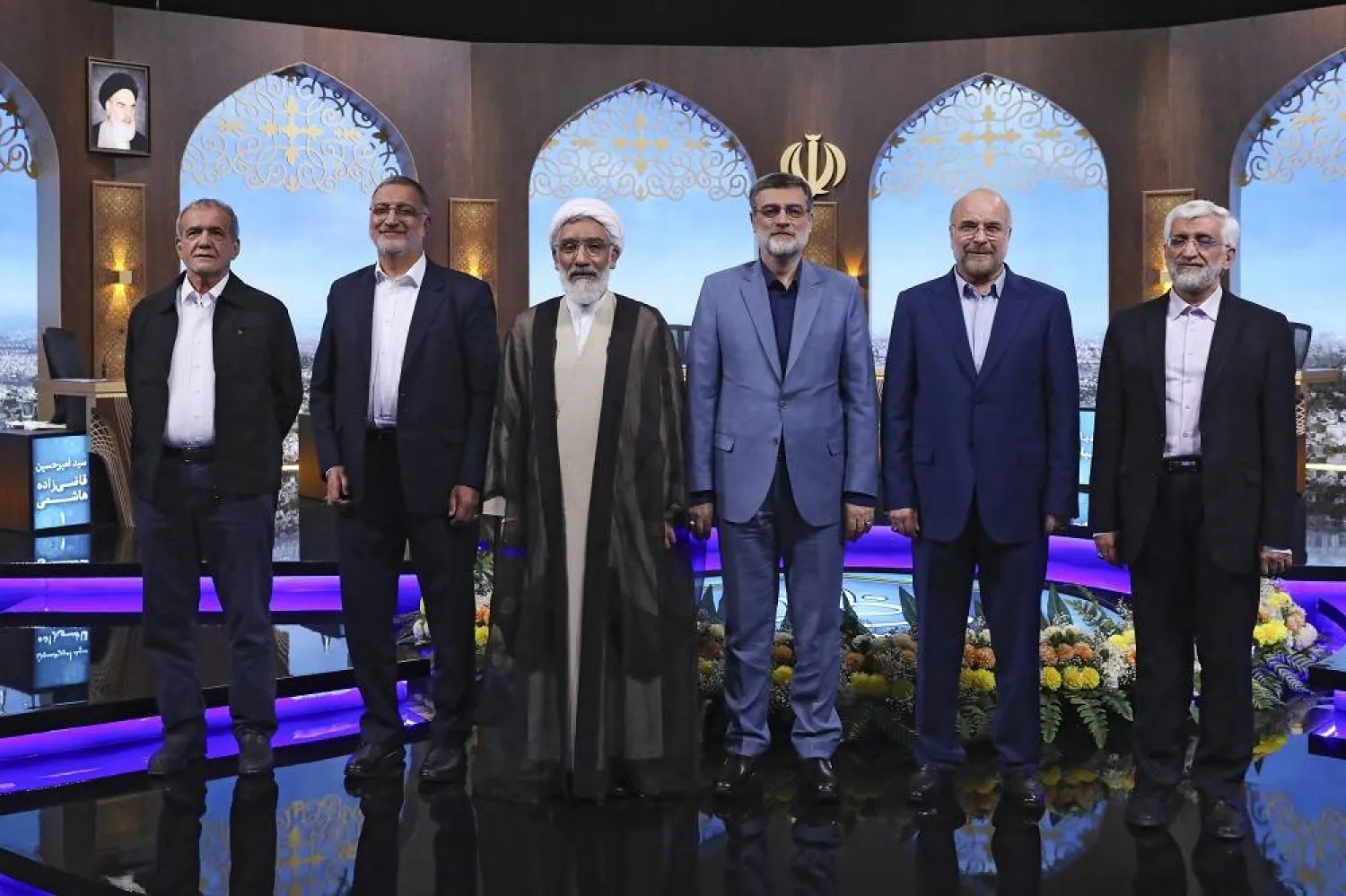Candidates in Friday's Iranian presidential election have vowed to revive the flagging economy, but voters see little prospect of relief from a cost of living squeeze without an end to sanctions and an easing of Iran's international isolation.
The daily struggle of ordinary Iranians to make ends meet is a persistent challenge for Iran's ruling clerics, who fear a revival of protests that have erupted periodically by lower and middle-income communities angry at enduring hardship. The reinstatement of US sanctions in 2018 hit Iran's oil exports, slashing government revenues and forcing it to take unpopular steps such as increasing taxes and running big budget deficits, policies that have kept annual inflation close to 40%.
Although the country has avoided total economic meltdown, thanks mainly to oil exports to China and higher crude prices, petroleum exports are still below their pre-2018 levels. Most candidates seeking to replace Ebrahim Raisi following his death in a helicopter crash last month say they plan to emulate his policy of economic self-reliance and more business ties to Asia. Others have defended broader relations with the world without offering practical steps to address sanctions.
During Raisi's three years in power, Iran’s economy re-emerged from a 2018-19 slump caused by the 2018 reimposition of sanctions, and growth peaked at 5.7% for the year ending in March, according to Iran’s Statistical Center.
Yet most of this expansion was driven by the energy sector, as the country experienced a 70% rise in oil output, now running at about 3.5 million barrels per day, with oil exports exceeding 1.4 million barrels per day, and mainly going to China. Without hydrocarbons, Iran’s growth last year would have been just 3.4% and its trade balance would have hit a deficit of $16.8 billion, according to Mohammad Rezvanifar, the head of the Iranian customs service. Foreign direct investment has also stalled at $1.5 billion in 2022, according to UNCTAD.

FALLING PURCHASING POWER
Unemployment is running at about 7.6%, according to the World Bank, compared to 9.6% when Raisi was elected. Yet many formal jobs pay a pittance, meaning the true figure of people without adequate work to live on is probably far higher.
“It is not difficult to understand why most Iranians are angry,” said Djavad Salehi-Isfahani, Professor of Economics at Virginia Tech.
“Living standards and poverty may have improved in the last two years, but this is not true going back a decade or two. The new president can inject hope and stop the conditions from getting worse, but not get Iran back to the 2000s,” Salehi-Isfahani added, referring to a more prosperous period.
Iranians’ purchasing power continued to shrink during Raisi’s presidency as the Iranian rial's free market rate more than halved, according to Iranian currency tracking website Bonbast, now reaching a value of 600,000 to the US dollar.
Prices for basic goods like dairy, rice and meat have skyrocketed in recent months. The subsidized price of Lavash bread, the most popular for Iranian households, shot up by at least 230% in the last three years, while red meat has become too expensive for many, its price rising by 440% to $10 per kg.
A teacher’s monthly salary is about $180 and many construction workers earn little more than $10 a day.
Candidates have promised to implement the country’s seventh development plan approved last year by parliament. It aims to curb inflation and develop exports and sets out ambitious targets of achieving 8% annual growth under sanctions.
But World Bank forecasts for the next three years see annual growth rates below 3.2% for Iran, as a result of subdued global demand, sanctions and domestic energy shortages.
Voters interviewed by Reuters said the state of the economy was tied to the country's diplomatic posture, which is strongly anti-Western and is determined by Supreme Leader Ali Khameni, the country's ultimate decision maker.
In his three years in office, Raisi, a Khamenei loyalist, vowed not to link the economy to nuclear negotiations with world powers, even though the talks could have lifted most US curbs by reviving a 2015 pact limiting Tehran's atomic program.

CONTINUITY IN POLICY
"The economy has been greatly affected by foreign policy, as no successful strategy is in place to reduce sanctions’ destructive impacts," said Mohammad, an administrator at Rudehen University in Tehran province. Like other voters interviewed he did not want his full name used due to the election's sensitivity.
The snap ballot has given candidates little time to develop detailed economic plans. Most said the economy should become more self-reliant before Iran tries to end sanctions, imposed over Tehran's disputed nuclear program, while low-key moderate Masoud Pezeshkian and hardline cleric Mostafa Pourmohammadi were more vocal on the need to open up relations to help the economy.
Election debates have mainly focused on fiscal imbalances, mismanagement of resources and graft, domestic issues which many Iranians believe are deep-rooted and resistant to reform.
"As long as government policies do not efficiently back competition, transparency and investment security, things will just get worse," said Peyman, a municipal engineer from Tehran.
Mehdi Ghazanfari, chairman of Iran’s sovereign wealth fund, told state media a lack of developed political parties meant election candidates did not identify future ministers or policies in advance, and the winner usually rushed to appoint a cabinet "that ends up being inconsistent".
Iran's economic outlook looks ever more uncertain, analysts say, with the possible return of Donald Trump as US president likely leading to tougher enforcement of oil sanctions, former foreign Minister Mohammad Javad Zarif has said in defense of Pezeshkian’s campaign.
















